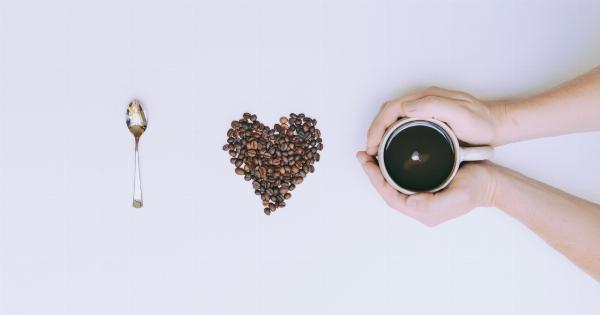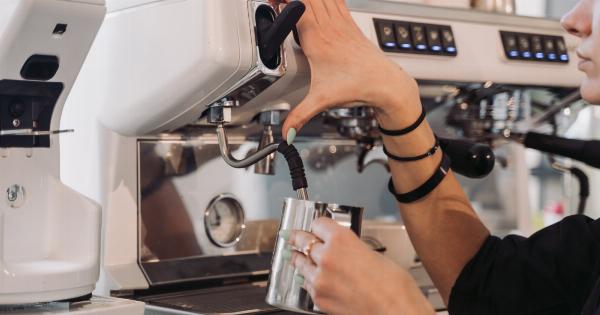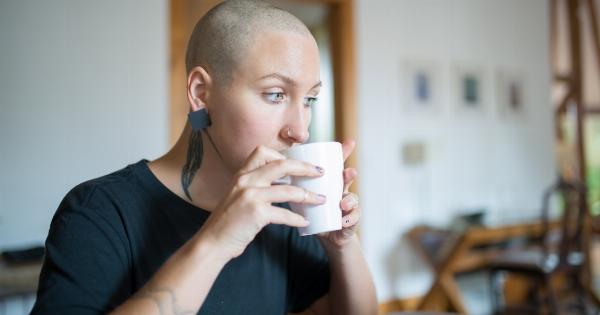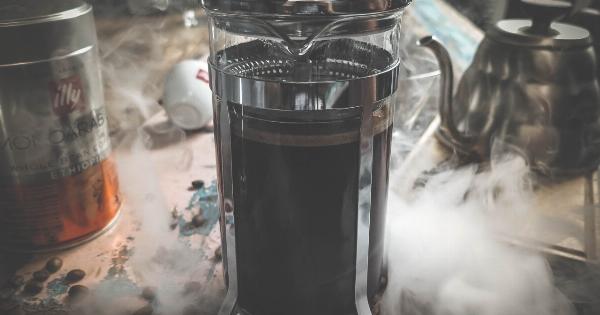Coffee is a beloved beverage, enjoyed by millions of people around the world. However, for some, the pleasure of coffee turns into an addiction.
How can you tell if your coffee consumption has crossed the line into addiction territory? Here are some signs to look out for:.
1. You Cannot Start Your Day Without a Cup of Coffee
If you can’t imagine starting your day without a cup of coffee, you may be addicted to caffeine. Dependency on caffeine means that you are unable to function without it.
Additionally, if you feel sluggish or moody until you have your first cup, it may be a sign that you’re having withdrawal symptoms from caffeine.
2. You Need More Coffee to Get the Same Effect
If you find that you need to increase your coffee consumption to feel the same alertness or buzz as before, it could be a sign that your body has developed a tolerance to caffeine.
Tolerance is a classic sign of addiction, and over time, the amount of coffee you need to consume can get out of control.
3. You Experience Withdrawal Symptoms When You Cut Back or Stop Drinking Coffee
If you find that you experience headaches, irritability, anxiety, or other symptoms when you try to cut back or stop drinking coffee altogether, it could be a sign that your body has become dependent on caffeine.
As you stop your coffee consumption, your body has to adjust to the withdrawal of caffeine.
4. You Spend More Money Than You Should on Coffee
If you’re spending more money on coffee than you can afford, it could be because you’ve developed an addiction to caffeine.
Paying high prices for designer coffee or continually topping up your cup at work can add up quickly, and over the long term, it can have a significant impact on your finances.
5. You Experience Health Problems Linked to Caffeine Consumption
Caffeine in moderation is safe for most people, but excessive coffee consumption can cause health problems like high blood pressure, heart palpitations, and sleep disorders.
If you’re experiencing any of these issues, it could be a sign that you’re consuming too much caffeine, and it’s time to cut back.
6. You’re Drinking Coffee Late Into the Night
If you find yourself drinking coffee late into the night and still feel alert, it could be a sign that your body has developed a tolerance to caffeine.
Late-night coffee consumption can affect your sleep quality and cause insomnia, which can have a negative impact on your overall health.
7. You’re Drinking More Coffee Than Water
If you’re drinking more coffee than water, it could be a sign that you’re addicted to caffeine. Caffeine is a diuretic that can cause dehydration, and excessive coffee consumption can disrupt your body’s hydration balance.
To maintain a healthy balance, it’s important to drink enough water along with coffee.
8. You’re Drinking Coffee Even When You’re Not Tired
If you find yourself drinking coffee even when you’re not tired, it could be a sign that you’re addicted to caffeine.
Drinking coffee for the taste is one thing, but drinking it continuously throughout the day regardless of how alert you feel can be a sign of a dependency on caffeine.
9. You’re Having Difficulty Concentrating When You Don’t Have Coffee
If you find it challenging to concentrate or get work done when you haven’t had coffee, it could be a sign of a caffeine addiction.
Caffeine can enhance your focus and alertness in the short term, but over-reliance on it can affect your cognitive abilities in the long run.
10. You’re Ignoring Other Pleasurable Experiences for Coffee
If you’re continually choosing coffee over socializing with friends, enjoying a meal, or pursuing other pleasurable experiences, it could be a sign of a caffeine addiction.
Addiction can make it difficult for you to enjoy anything else and can lessen your interest in other aspects of life.
Conclusion
If you can relate to one or more of the warning signs mentioned in this article, it’s time to take a hard look at your coffee consumption habits. While caffeine addiction is hard to break, it’s not impossible.
Test out cutting back and finding alternative ways to get the same amount of enjoyment in your day and pay attention to how you feel. It’s also essential to consult your doctor if you’re looking to make any significant changes to your coffee habits, especially if you’re experiencing health issues.




























